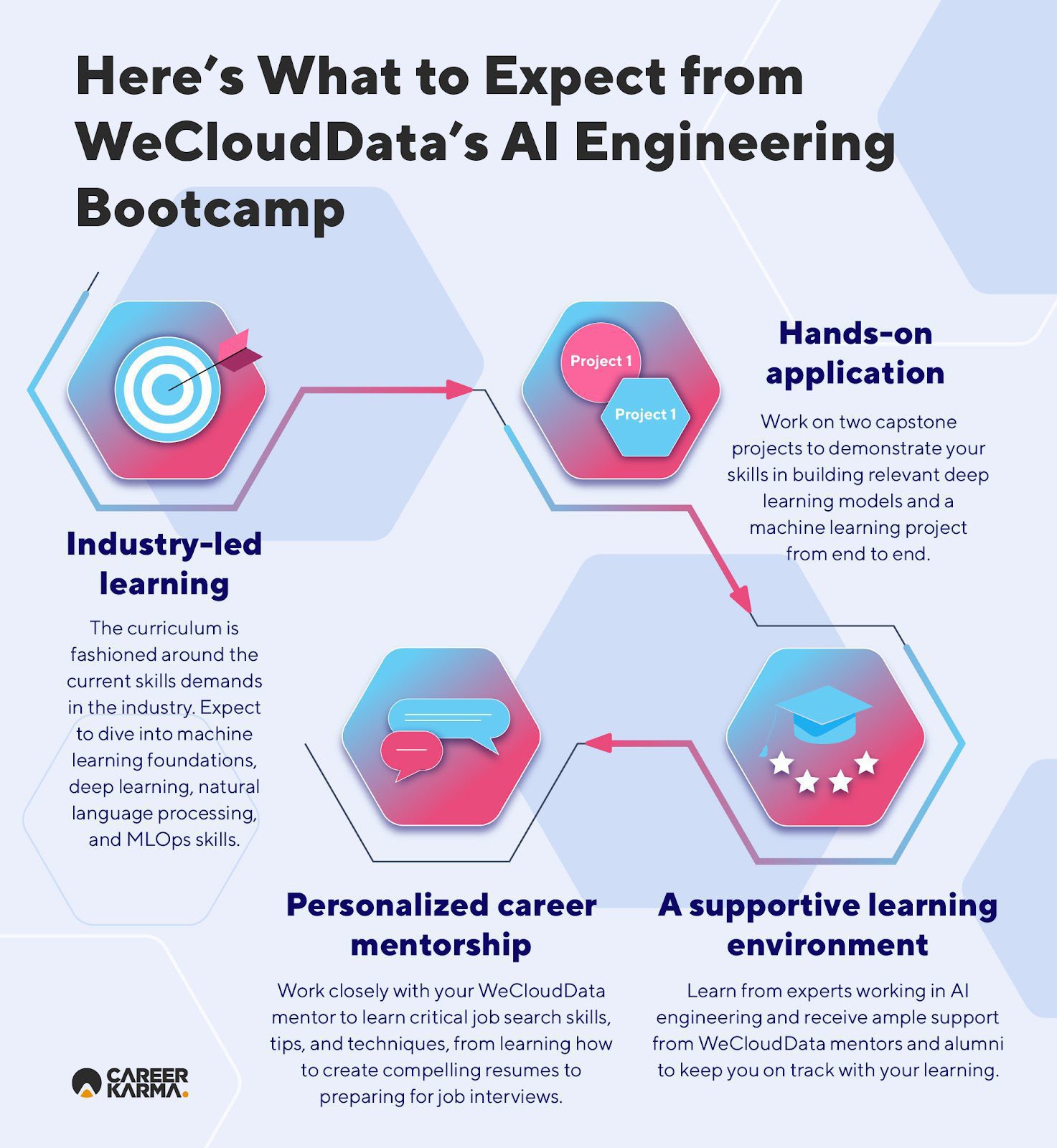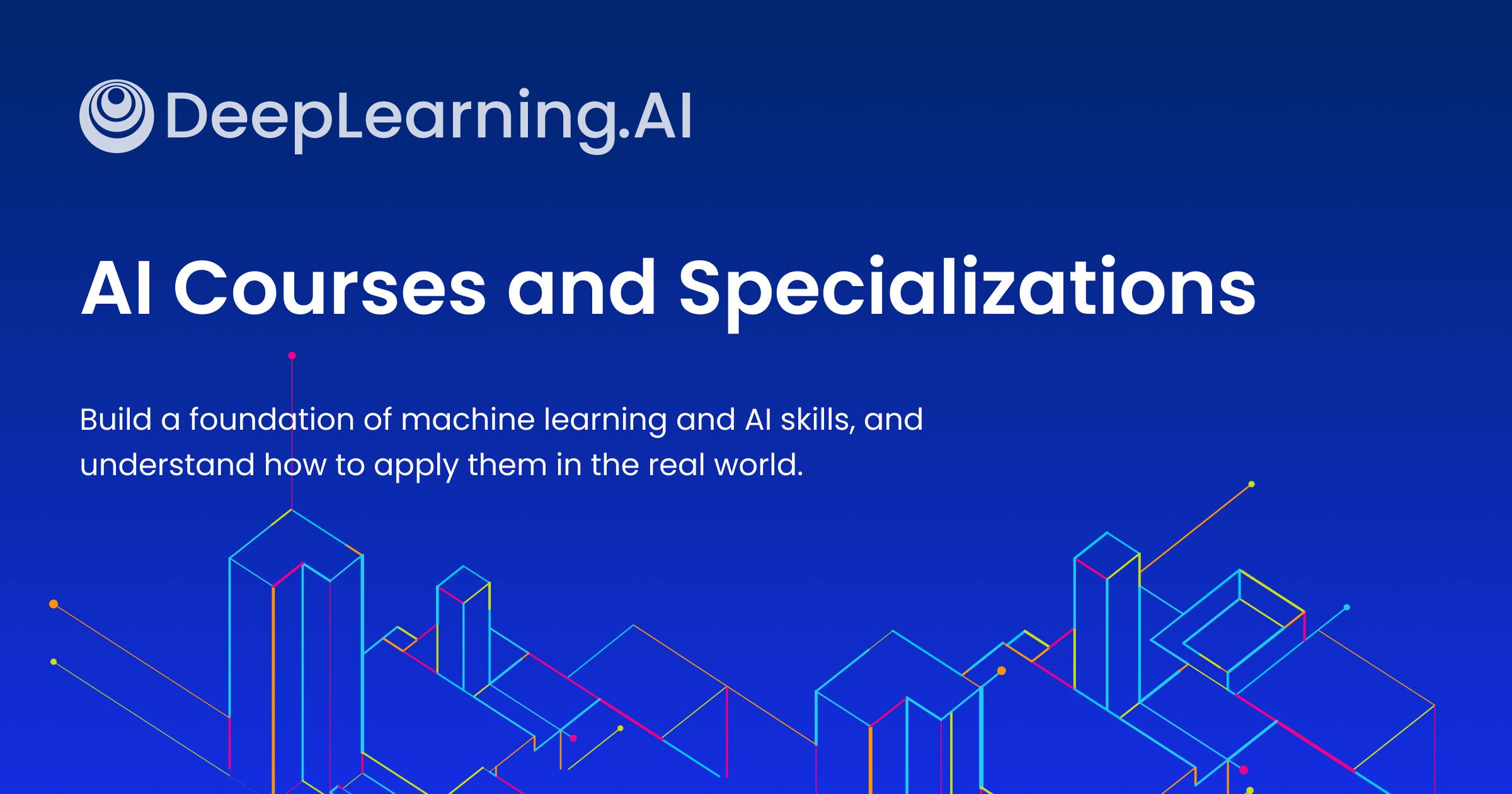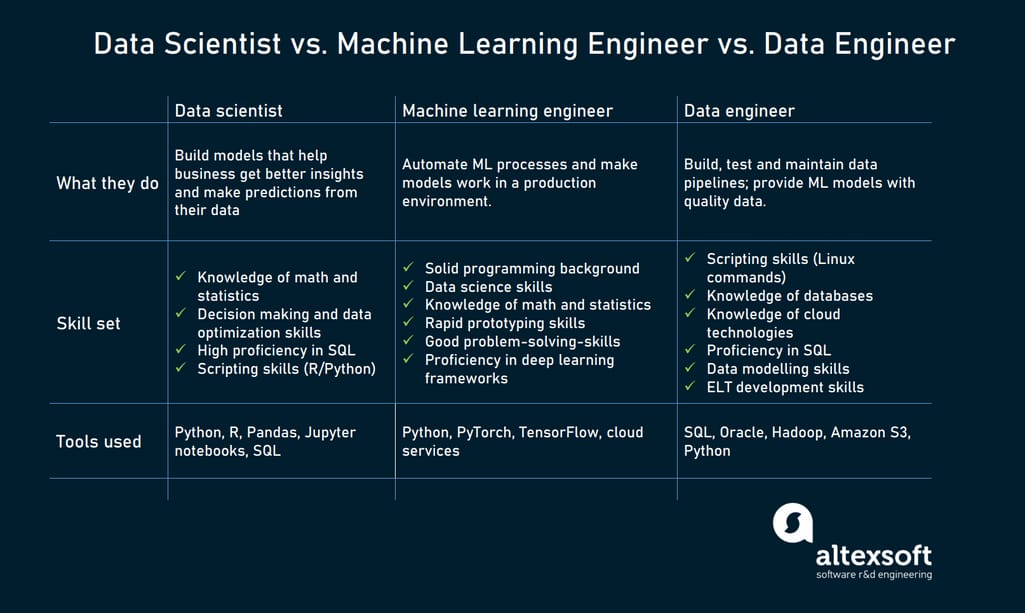All Categories
Featured
Table of Contents
- – Getting The Machine Learning Crash Course For ...
- – Unknown Facts About How To Become A Machine Le...
- – Leverage Machine Learning For Software Develo...
- – Our Ai And Machine Learning Courses Statements
- – Things about Machine Learning Certification ...
- – Get This Report about Best Machine Learning ...
All of a sudden I was surrounded by people who could resolve tough physics inquiries, recognized quantum auto mechanics, and could come up with fascinating experiments that obtained published in top journals. I dropped in with an excellent team that encouraged me to check out points at my very own pace, and I invested the next 7 years finding out a lot of points, the capstone of which was understanding/converting a molecular characteristics loss feature (consisting of those shateringly discovered analytic by-products) from FORTRAN to C++, and creating a gradient descent routine straight out of Mathematical Recipes.

I did a 3 year postdoc with little to no artificial intelligence, just domain-specific biology stuff that I didn't find fascinating, and lastly managed to obtain a work as a computer researcher at a nationwide laboratory. It was an excellent pivot- I was a concept detective, implying I can get my own gives, compose papers, etc, yet really did not need to show classes.
Getting The Machine Learning Crash Course For Beginners To Work
However I still didn't "obtain" equipment understanding and wished to work somewhere that did ML. I attempted to get a task as a SWE at google- experienced the ringer of all the difficult inquiries, and eventually obtained refused at the last step (thanks, Larry Web page) and went to help a biotech for a year before I ultimately handled to get worked with at Google throughout the "post-IPO, Google-classic" period, around 2007.
When I reached Google I rapidly looked with all the tasks doing ML and discovered that other than ads, there really wasn't a great deal. There was rephil, and SETI, and SmartASS, none of which appeared also remotely like the ML I wanted (deep neural networks). I went and concentrated on other stuff- discovering the distributed innovation beneath Borg and Colossus, and grasping the google3 pile and production atmospheres, mostly from an SRE point of view.

All that time I would certainly spent on machine learning and computer framework ... mosted likely to writing systems that packed 80GB hash tables into memory simply so a mapper might compute a tiny component of some slope for some variable. Sibyl was in fact a terrible system and I got kicked off the group for telling the leader the appropriate way to do DL was deep neural networks on high efficiency computer equipment, not mapreduce on affordable linux collection equipments.
We had the information, the formulas, and the compute, simultaneously. And even better, you didn't need to be within google to take advantage of it (except the large data, which was transforming quickly). I comprehend enough of the math, and the infra to ultimately be an ML Engineer.
They are under intense pressure to get outcomes a few percent far better than their collaborators, and then when released, pivot to the next-next point. Thats when I came up with one of my regulations: "The best ML versions are distilled from postdoc rips". I saw a couple of people damage down and leave the market forever just from functioning on super-stressful projects where they did fantastic work, yet only got to parity with a competitor.
This has been a succesful pivot for me. What is the moral of this long tale? Charlatan disorder drove me to overcome my charlatan disorder, and in doing so, along the road, I learned what I was chasing after was not in fact what made me pleased. I'm even more pleased puttering about using 5-year-old ML technology like object detectors to enhance my microscope's capacity to track tardigrades, than I am trying to come to be a famous scientist that unblocked the difficult issues of biology.
Unknown Facts About How To Become A Machine Learning Engineer In 2025

Hello there world, I am Shadid. I have been a Software program Engineer for the last 8 years. I was interested in Maker Knowing and AI in university, I never had the opportunity or persistence to seek that passion. Currently, when the ML field grew exponentially in 2023, with the most up to date developments in large language designs, I have a horrible wishing for the roadway not taken.
Partially this insane concept was likewise partly motivated by Scott Young's ted talk video clip titled:. Scott talks concerning just how he ended up a computer technology level just by complying with MIT curriculums and self researching. After. which he was likewise able to land an entry level setting. I Googled around for self-taught ML Engineers.
At this factor, I am not certain whether it is feasible to be a self-taught ML engineer. I intend on taking programs from open-source training courses offered online, such as MIT Open Courseware and Coursera.
Leverage Machine Learning For Software Development - Gap for Beginners
To be clear, my goal right here is not to construct the following groundbreaking version. I just intend to see if I can get an interview for a junior-level Artificial intelligence or Data Design job hereafter experiment. This is purely an experiment and I am not attempting to change into a duty in ML.

Another please note: I am not starting from scrape. I have solid history expertise of single and multivariable calculus, direct algebra, and stats, as I took these training courses in school concerning a years back.
Our Ai And Machine Learning Courses Statements
I am going to focus generally on Equipment Learning, Deep learning, and Transformer Design. The objective is to speed up run via these initial 3 training courses and get a solid understanding of the fundamentals.
Since you've seen the program suggestions, here's a quick overview for your learning equipment finding out trip. We'll touch on the requirements for the majority of device discovering courses. Advanced programs will certainly need the complying with knowledge before starting: Straight AlgebraProbabilityCalculusProgrammingThese are the general components of being able to understand how equipment discovering jobs under the hood.
The very first program in this list, Equipment Discovering by Andrew Ng, includes refresher courses on most of the math you'll require, yet it may be challenging to learn machine knowing and Linear Algebra if you have not taken Linear Algebra before at the same time. If you require to review the math needed, look into: I 'd recommend finding out Python given that the majority of great ML training courses make use of Python.
Things about Machine Learning Certification Training [Best Ml Course]
In addition, one more superb Python resource is , which has many cost-free Python lessons in their interactive browser environment. After discovering the requirement essentials, you can begin to actually comprehend just how the algorithms work. There's a base collection of algorithms in artificial intelligence that everyone must know with and have experience using.

The courses listed above contain essentially every one of these with some variant. Comprehending just how these methods work and when to utilize them will certainly be crucial when handling brand-new projects. After the essentials, some more innovative methods to discover would certainly be: EnsemblesBoostingNeural Networks and Deep LearningThis is just a start, yet these algorithms are what you see in a few of one of the most fascinating machine learning solutions, and they're practical additions to your toolbox.
Discovering equipment discovering online is difficult and exceptionally rewarding. It is necessary to bear in mind that just viewing video clips and taking quizzes doesn't indicate you're really finding out the material. You'll learn much more if you have a side project you're dealing with that uses various information and has other objectives than the training course itself.
Google Scholar is constantly an excellent place to start. Get in key words like "artificial intelligence" and "Twitter", or whatever else you want, and struck the little "Create Alert" link on the delegated get e-mails. Make it a regular practice to review those signals, check via papers to see if their worth reading, and afterwards commit to understanding what's going on.
Get This Report about Best Machine Learning Courses & Certificates [2025]
Machine understanding is extremely satisfying and interesting to learn and explore, and I wish you located a program above that fits your own trip into this interesting area. Machine understanding comprises one component of Information Scientific research. If you're likewise thinking about discovering data, visualization, data analysis, and much more make sure to look into the top data scientific research programs, which is an overview that adheres to a comparable style to this one.
Table of Contents
- – Getting The Machine Learning Crash Course For ...
- – Unknown Facts About How To Become A Machine Le...
- – Leverage Machine Learning For Software Develo...
- – Our Ai And Machine Learning Courses Statements
- – Things about Machine Learning Certification ...
- – Get This Report about Best Machine Learning ...
Latest Posts
How To Prepare For Faang Data Engineering Interviews
Data Science Vs. Software Engineering Interviews – What’s The Difference?
What Are Faang Recruiters Looking For In Software Engineers?
More
Latest Posts
How To Prepare For Faang Data Engineering Interviews
Data Science Vs. Software Engineering Interviews – What’s The Difference?
What Are Faang Recruiters Looking For In Software Engineers?